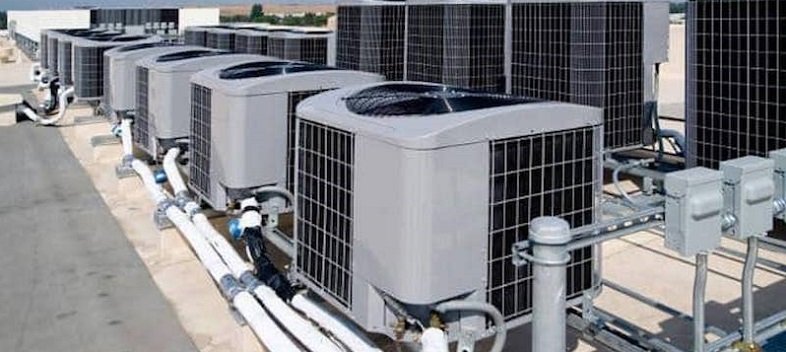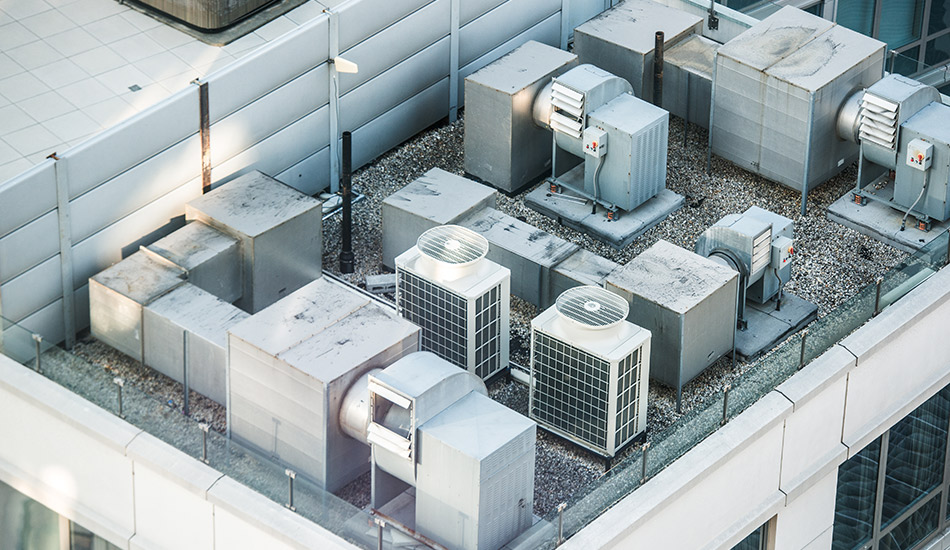Top Reasons to Schedule heat pump replacement ooltewah tn
Selecting In Between a Heatpump and Heating System: Trick Factors To Consider for Your Cooling And Heating Demands
When reviewing home heating alternatives for HVAC requires, the choice between a heat pump and a heater can be intricate. Each system offers unique benefits tailored to particular environments and power efficiency goals. Recognizing these distinctions is important for making an informed option. Trick elements such as installation expenses and environmental effect better complicate the selection process. Which alternative absolutely straightens with one's convenience and sustainability choices? The complying with areas will certainly check out these factors to consider carefully.
Understanding Warm Pumps: Just How They Work and Their Benefits
While several house owners consider different heating alternatives, understanding just how heat pumps feature and their benefits can significantly influence their choice. Warmth pumps operate by moving warmth instead of producing it. In the winter season, they extract warmth from the outside air or ground and move it inside your home, while in the summertime, they reverse this procedure, cooling down the home by removing warmth outside. This double performance makes them functional for year-round climate control.One of the primary advantages of heatpump is their power effectiveness. They use significantly much less power compared to standard heater, possibly leading to reduced utility costs (ductless mini splits). Additionally, heatpump have a smaller carbon impact, making them an eco pleasant choice. They additionally need much less maintenance than standard systems, contributing to lasting price savings. On the whole, recognizing the auto mechanics and advantages of warmth pumps can help property owners make informed choices concerning their home heating and cooling demands
Exploring Heaters: Types, Procedure, and Advantages
Heaters are available in numerous types, including gas, electrical, and oil versions, each with distinct functional devices. Comprehending these distinctions is necessary, as they affect efficiency and home heating efficiency. Furthermore, furnaces provide many advantages, such as consistent warm result and dependability in colder environments.
Sorts of Heating systems
Furnace can differ significantly in design and operation, with heaters being a preferred option among home owners. There are numerous types of heaters, each making use of different fuel sources and modern technologies. Gas heating systems are common, leveraging all-natural gas to generate warm successfully. Electric furnaces, on the other hand, make use of electrical resistance to create warmth, commonly preferred for their simple installation. Oil furnaces, while much less common, are reliable in areas with minimal gas accessibility (ductless mini splits). Additionally, condensing heaters make the most of power efficiency by recording and recycling exhaust gases. Each kind operates via a system of warmth exchangers and ductwork to distribute warm air throughout a home. Understanding the distinctions between these heating system types is essential for informed HVAC choices
Advantages of Heating systems
For house owners seeking trusted heat during cold months, the benefits of heaters are substantial. Heating systems supply regular home heating, making sure also temperature levels throughout the home. They are especially effective in severe cool, typically outshining warmth pumps in freezing problems. Various types, including gas, electrical, and oil furnaces, supply versatility to fulfill varied demands and preferences.Furnaces also often tend to have lower first installation costs contrasted to warm pumps, making them a more available option for several. Their durable design adds to a longer life expectancy, with many systems lasting over 15 years with proper maintenance. In addition, contemporary heating systems are commonly equipped with advanced innovation for boosted efficiency, which can lead to decreased energy expenses. On the whole, furnaces remain a dependable selection for effective home heating.

Energy Performance: Comparing Warm Pumps and Furnaces
When comparing energy performance between heat pumps and furnaces, the Seasonal Power Effectiveness Proportion (SEER) plays a vital duty in identifying efficiency. Additionally, a functional expense evaluation reveals the lasting economic effects of each system. Recognizing these factors can guide house owners in making informed choices regarding their heating services.
Seasonal Energy Efficiency Ratio
Energy efficiency plays a crucial function in the decision-making procedure in between warm pumps and heating systems, particularly when considering the Seasonal Power Efficiency Ratio (SEER) This statistics steps the cooling efficiency of heat pumps over an entire air conditioning season, providing a standardized means to evaluate performance. Higher SEER rankings show better energy performance, translating to reduced power usage and lowered utility costs. In contrast, furnaces are usually assessed using the Annual Fuel Application Performance (AFUE) rating, which mirrors heating performance. When contrasting these 2 systems, home owners need to focus on SEER rankings for heatpump, as they directly impact total power financial savings and environmental sustainability. An extensive understanding of SEER can especially influence the lasting fulfillment and cost-effectiveness of the chosen a/c remedy.
Operational Expense Evaluation
Understanding the operational prices associated with heatpump and furnaces is essential for home owners examining their options. Heatpump usually use greater power effectiveness, transforming electrical power right into heat with very little waste. This results in lower month-to-month utility bills, particularly in moderate environments. On the other hand, typical furnaces, particularly gas designs, may have reduced in advance expenses but can sustain greater operational expenditures with time because of sustain costs and effectiveness ratings.Moreover, warmth pumps can function as both home heating and cooling systems, possibly minimizing the requirement for different a/c units. While initial financial investments for warmth pumps might be higher, their long-lasting financial savings in power performance can make them an extra cost-efficient selection for lots of families. Cautious analysis of neighborhood energy prices is vital to identify the most effective choice.
Setup Prices: What to Anticipate for Each Heater
Setup costs for heater can vary significantly between warm pumps and furnaces, affecting property owners' decisions. Warmth pumps normally have higher upfront installation prices, usually ranging from $3,500 to $8,000, depending on the device dimension and complexity of installation. This consists of the outside system, indoor handling system, and needed ductwork modifications. Alternatively, heaters often tend to have lower first expenses, averaging between $2,500 and $6,000, which can be appealing for budget-conscious homeowners. Nevertheless, installation expenditures can raise if substantial ductwork is required.Moreover, the option of gas kind for heaters-- all-natural gas, gas, or electrical-- can likewise influence setup costs. While heatpump offer power effectiveness, their initial investment may discourage some purchasers. Inevitably, examining installment expenses together with long-term cost savings and performance will aid house owners in making notified decisions concerning their heating unit.
Climate Considerations: Which System Performs Much Better in Your Location
Just how do climate problems affect the performance of home heating systems? The efficiency of heatpump and furnaces can vary considerably depending on the local climate. In modest environments, warm pumps excel by effectively moving warm from the outside air, making them an energy-saving alternative. Their effectiveness lessens in exceptionally chilly temperature levels, where they may struggle to extract sufficient warmth. Conversely, heaters, particularly gas versions, provide trusted and constant heat no matter outdoor problems, making them better in colder regions.In locations that experience milder wintertimes, warm pumps can operate efficiently year-round, offering both home heating and cooling. On the other hand, regions with rough wintertimes often benefit from the robustness of heating systems. Ultimately, understanding the neighborhood environment is important when determining between a heatpump and a heater, as it directly impacts their operational effectiveness and total efficiency.
Maintenance Demands: Long-Term Care for Warm Pumps vs. Furnaces
While both heatpump and heating systems require regular upkeep to ensure peak performance, their certain demands and treatment regimens differ substantially. Furnaces usually need much less frequent interest, with annual assessments being adequate to look for gas leakages, clean filters, and evaluate general functionality. Their less complex layout commonly permits for simple repairs.In contrast, heatpump require semiannual maintenance due to their double role in cooling and heating. This includes cleaning coils, examining refrigerant levels, and making certain that both the outdoor and indoor devices work at their best. In addition, warm pump upkeep usually includes even more detailed components, making expert servicing essential.Neglecting upkeep can result in reduced performance and raised energy expenses for both systems. Eventually, house owners should consider these long-lasting treatment demands when picking between a heatpump and a furnace, as positive maintenance can expand the life-span and performance of either system significantly.
Environmental Influence: Picking a Sustainable Heating Option
The environmental effect of home heating systems is a crucial assessment for homeowners looking for sustainable choices. Heat pumps are normally much more energy-efficient than conventional furnaces, as they transfer warmth instead of generate it, significantly decreasing carbon emissions. By using renewable resource sources, such as air-source or geothermal warmth pumps, homeowners can better reduce their eco-friendly footprint.On the various other hand, try these out all-natural gas furnaces send out greenhouse gases and add to air contamination, though they typically give higher heat output. Nevertheless, developments in modern technology have actually brought about the advancement of high-efficiency heating systems that decrease emissions.Ultimately, selecting a heating unit includes weighing effectiveness against environmental influence. Property owners are encouraged to review local power resources and motivations for sustainable systems, making certain a choice that lines up with both personal comfort and environmental responsibility. The decision affects not just instant convenience however likewise long-lasting sustainability and ecological health and wellness.
Regularly Asked Concerns
For How Long Do Heat Pumps and Furnaces Commonly Last?
The life expectancy of heatpump commonly varies from 15 to 20 years, while heating systems can last between 15 to three decades. Regular upkeep substantially affects their durability and effectiveness in offering heating options.
Can I Use a Heatpump in Extremely Cold Climates?
Heatpump can operate in this website incredibly cold climates, but their efficiency lessens as temperatures decrease. In such problems, supplementary heating sources might be required to maintain comfortable interior temperature levels and assure peak efficiency.

What Is the Sound Degree of Warmth Pumps Versus Furnaces?
The noise levels of heat pumps and heating systems differ significantly. Normally, warm pumps operate more silently than conventional heating systems, making them preferable for those delicate to appear, while furnaces may generate louder operational sounds during home heating cycles.
Are Heat Pumps Suitable for Both Cooling And Heating?
Heat pumps are without a doubt appropriate for both cooling and heating (furnace replacement). They work by moving warm, giving effective temperature control year-round, making them a versatile option for homeowners looking for an all-in-one a/c service
What Size Heater Do I Need for My Home?
Identifying the proper dimension furnace for a home needs evaluating elements such as square video footage, insulation top quality, neighborhood climate, and the home's design. Consulting an expert can ensure an exact analysis and suitable convenience. Heat pumps typically provide greater power performance, converting electric energy right into heat with very little waste. In modest climates, warm pumps stand out by successfully transferring warm from the outdoors air, making them an energy-saving alternative. On the other hand, heating systems, specifically gas models, offer regular and reputable warm no matter of outdoor conditions, making them more suitable in colder regions.In areas that experience milder winters, warm pumps can operate successfully year-round, giving both heating and air conditioning. Warmth pumps are usually more energy-efficient than conventional heating systems, as they move warm read what he said instead than produce it, considerably reducing carbon discharges. By using sustainable energy resources, such as geothermal or air-source warm pumps, house owners can even more decrease their eco-friendly footprint.On the various other hand, all-natural gas heating systems release greenhouse gases and add to air contamination, though they commonly offer higher warm outcome.